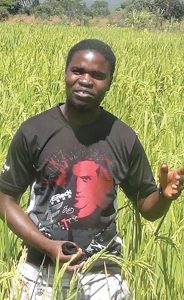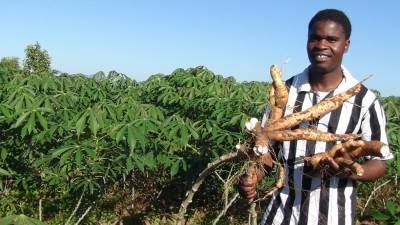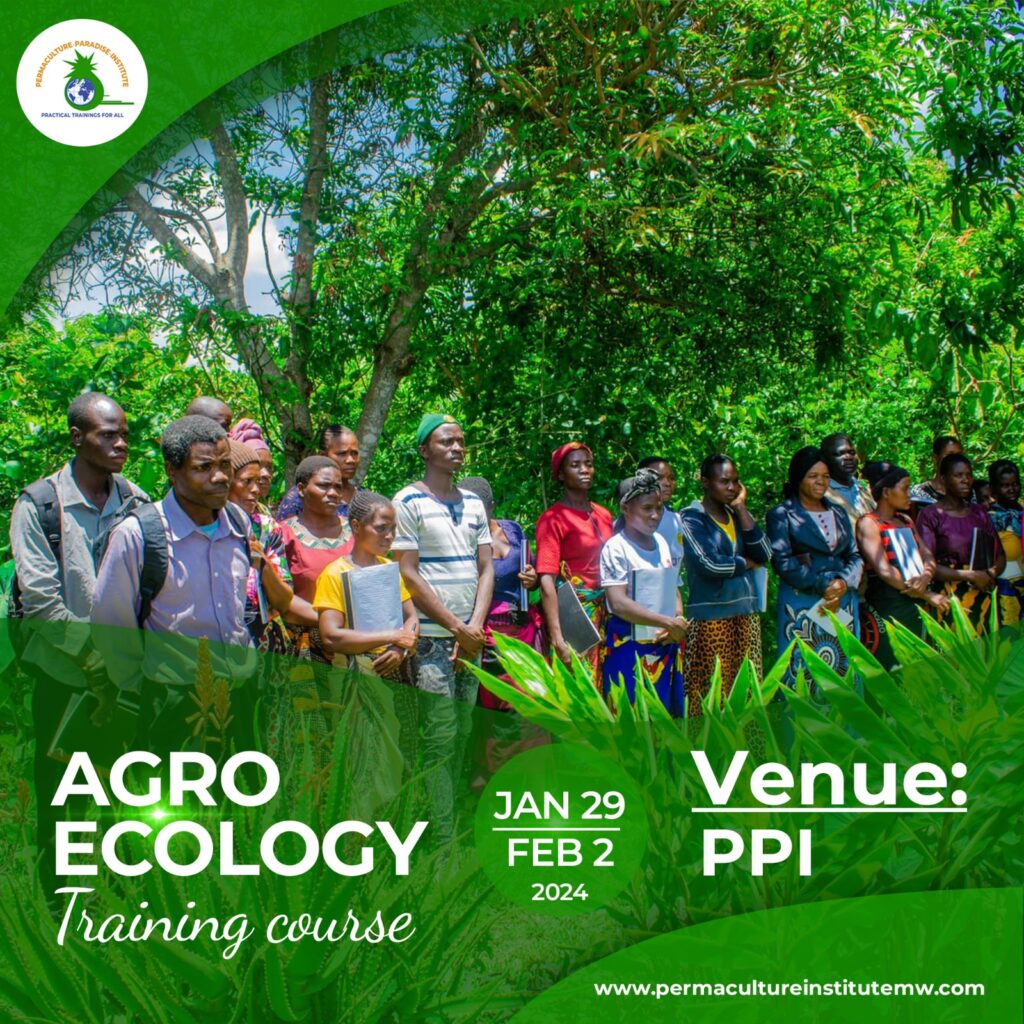In Mchinji District, about 100 kilometres west of Lilongwe City, lies a 56-acre farm flourishing with a diversity of crops, trees, fruits and vegetables.

The farm, known as Permaculture Paradise Institute, is a wonder and refuge to many people. Over 200 types of food crops, both indigenous and exotic, suitable to the conditions of the area, are grown there.Advertisement
Many people visit the farm to both admire and learn the farming practices or buy the farm produce.
“We use traditional farming methods; local seeds and local everything to address local problems,” says Luwayo Biswick, the farm’s manager.
Even the source of energy used at the farm is strictly ecofriendly. The farm has a biogas digester which processes human wastes into energy for various uses.
Water is tapped from the surrounding mountains through gravity into a swimming pool at his house. From the swimming pool, the water flows into the farmyard to irrigate various crops grown throughout the year.
“Things are done the local way here. We use local resources to address local challenges,” says Biswick, who was the 2019 Climate Change Champion nominee of the European Union Delegation to Malawi.
Born in a poor family of mere peasants, life was not easy for him, he says.
Against such a background, Biswick thought permaculture could be the solution to his poverty.
Today, he is satisfied that his dream has perfectly come true to the effect that he has even become a model to people from surrounding areas and beyond who benefit from the farm in various ways.
His Facebook post on 11 November 2019 shows pictures of farmers with seed packs in their hands.
Its caption reads: “This morning we gave free seeds to lead farmers of GVH [Group Village Head] Mphepo in Mchinji. We do our farming to attract those in need.
“We are here to serve people with what is from Malawi; giving it back to the people of Malawi.”
Another post of December, 14 2019 reads: “Today was another big day; we had 70 students from Golden Gate Memorial School of Lilongwe and a team from Zambia. We fed over 80 people today, all from the farm.”
The word permaculture was coined in 1981 by an Australian researcher Bill Mollison. It consists of two words, permanent and agriculture; a deliberate fusion that seeks to communicate its core idea— permanent agriculture.
This is the type of agriculture that advocates for the growing of crops throughout the year regardless of prevailing weather pattern, by using simple land designing techniques.
“With permaculture there is never a time when there’s nothing in the field because our model and example to act by is the natural ecosystems because in nature you will find trees growing any time of the year.
“And you see one funny thing is that, as we are getting into the hottest months of the year that’s when nature produces new leaves with no water,” Biswick explains.
He says most households go hungry every year because they largely depend on rain-fed agriculture
“If you are doing conventional farming, it’s not permanent because you plant maize today, harvest it and leave the farm fallow or dormant.
“This is why we have a lot of people going to bed on an empty stomach in January and February because their harvested maize is not enough,” he says.
Malawi is vulnerable to the effects of climate change because of its reliance on rain-fed agriculture in that extreme weather conditions such as drought and floods have resulted in poor crop yields or total crop failure.
The situation has led to serious food shortages, hunger and malnutrition.
However, Biswick argues that permaculture could solve nutrition and hunger problems because it encourages the growing of a diversity of crops at low cost.
“Come floods, you have crops washed away by the floods and you still have a lot of other crops withstanding the floods.
“Similarly, in times of drought, crops that need a lot of water die but you still have other drought tolerant crops surviving,” says Biswick who grows cassava, rice, maize, edible flowers and fruits, among others.
He explains that his farm’s achievements can be replicated at national level if there can be deliberate policies to promote permaculture.
“Our agricultural policies are so much focused on the promotion of synthetic chemicals and fertilisers.
“This is contributing a lot to land degradation, poverty, famine, droughts, and climate change because we are using resources that are not natural to grow food,” Biswick says.
The Malawi National Nutrition Policy of 2016 promotes dietary diversification and the use of a variety of indigenous foods to achieve the six food groups and fight malnutrition.
Biswick further explains that popularisation of organic farming is important for a healthy nation because foods produced with the aid of chemicals and fertilisers are hazardous.
“Think of the broiler chickens; think of the chemical-sprayed vegetables which some people consume raw as salad. It’s like committing suicide,” he says.
Biswick says farmers ought to be encouraged to use compost manure and natural methods of pest and disease control.
But what does it take for someone to be a successful permaculturist?
Biswick’s farm is centered on the principle of mixed cropping as opposed to mono-cropping.
“This organic farming is not new; it’s something that has been practiced for ages by our ancestors.
“Our parents could do shifting cultivation, crop rotation, and mixed cropping. So one does not necessarily need to go to a formal school,” he says.



